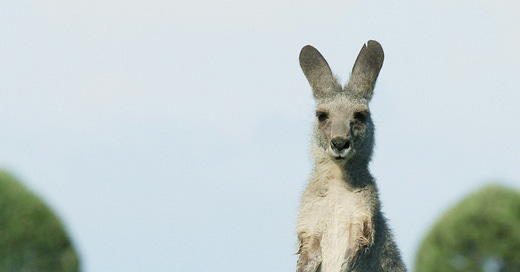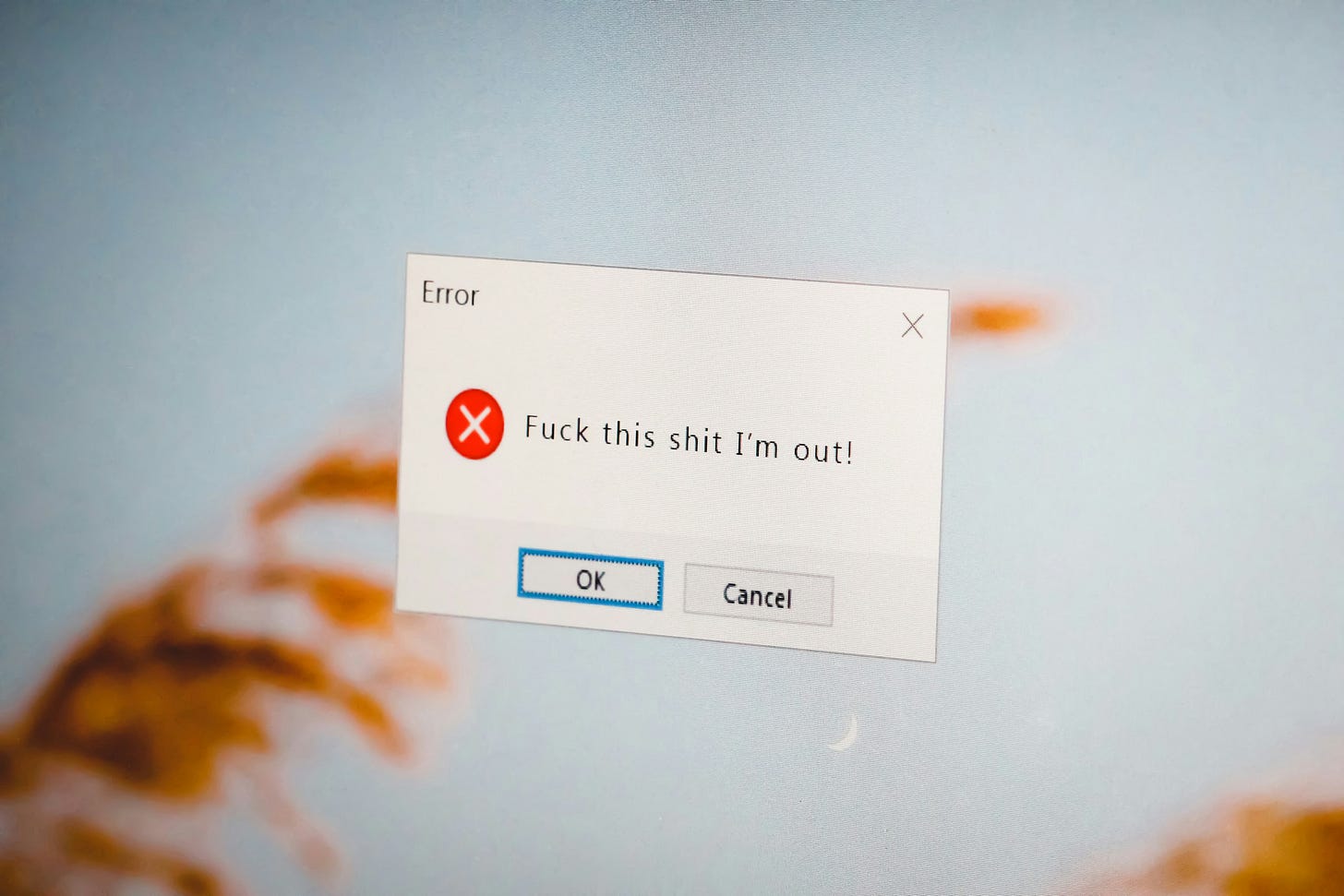Aussie's Supposedly Speak English - The evolution of Australian English & the Comical Words Used
What are the funniest words and phrases 'Down Under'? Why don't we speak 'normal' English?
Australian English began to develop way back when British settlers and prisoners colonised the country. This brought people from England, Ireland, Scotland, and Wales living together. As they interacted, a dialect levelling occurred: Individuals levelled out their accents in order to better communicate, leading them to a universal accent. Language from First Nations (Aboriginal) people also became incorporated, particularly words for animals and plants, e.g. kangaroo, koala, kookaburra, Waratah.
‘Kangaroo’ is an Australian Aboriginal word Photo by Photoholgic on Unsplash
The children of settlers born in Australia, spoke with a different accent, based on the dialect levelling that occurred. This led to the creation of what is known as ‘The Great Australian Shwa’. A ‘schwa’ is an unstressed central vowel, and many languages have them. The ‘a’ in ‘balloon’ is an example of an English ‘shwa’, we do not emphasise this vowel as we do the ‘oo’. Australian English uses a lot of schwas, which makes us harder to understand, and can make learning to spell in Australia trickier. In fact, videos like the following example are used to teach about this ‘shwa’.
That’s not where our weird vowel pronunciation ends, though. Just to confuse other English speakers, we like to overemphasise other vowels, tending to elongate them and emphasise them more. The broader the Australian accent, the longer the vowels. Believe it or not, there are 3 types of Australian accent. There’s the broad Australian accent, which is the most commonly known overseas and the most difficult to understand. Steve Irwin had a broad Australian accent. There’s the general accent, which is the most common Down Under, and a little easier to understand than the broad accent, because vowels are elongated slightly less. Last, there’s the cultivated accent, which is the closest to a British accent. Cate Blanchett speaks with this accent. The different accents tend to be closely related to socio-economic level, with the cultivated accent being more likely to be spoken by the upper class. This makes a lot of sense when you consider that Australia was settled by free, richer people who were gifted land, but also by convicts. Free settlers, as we call them, were unlikely to interact often with convicts, but more likely with other free British settlers. Thus, through the generations, accents may have developed differently.
Fast forward a couple of hundred years, and Australian English has evolved to include an excessive amount of diminutives (shortened words). We just bloody love them. The most likely reason for this development is cultural. We love informality, camaraderie and friendliness. This trend has also been shaped by Cockney rhyming slang and the uniqueness of the Aussie experience. Everything is abbreviated here, and often an ‘o’ or an ‘ee’ sound is added to the end. This habit transcends socio-economic status - all Aussies abbreviate a LOT. You’ll notice throughout this article, I’ve not referred to us as Australians, but always as Aussies. That wasn’t intentional; it’s just how we speak. Here are some very common abbreviations:
Australia - straya
University - uni
Afternoon - arvo
Breakfast - brekky
Barbecue - barby
Biscuit - bikky
Avocado - avo
Christmas - Chrissy
Television - telly
Politician - polly
Electrician - sparky (because they deal with ‘sparks’)
Bricklayer - bricky
Service station - servo
Sick day - sicky (often used in the phrase ‘pull a sicky’, which is when you fake being sick and take the day off work to do something better, like go to the beach)
Toilet - loo and/or dunny - ‘‘Dunny’ is apparently catching on in other countries due to the popularity of the children’s cartoon ‘Bluey’.
This long list is actually a very small selection of the words Aussie’s abbreviate!
Image of Bluey from the Australian TV station, ABC
The other part of what makes Australian lingo (language) different is something that other English-speaking countries sometimes find offensive. We swear a LOT. And we love it! In fact, depending on how they’re used, many swear words can be terms of endearment Down Under. Friends, especially men, will commonly say to each other, ‘How ya doing c*nt?’ This isn’t offensive, the ‘c’ word in this context is equivalent to saying ‘mate’ and this is a genuine, friendly greeting. However, if someone says, “What are ya lookin’ at, c*nt?” it’s not a term of endearment and will quite possibly end in a fight.
Swearing is so common in Australia, it’s part of everyday sayings that we all use. Some examples are:
“No wuckers” (means ‘no fucking worries’, which means you don’t mind doing it).
“Get rooted”, “Get screwed”, “Get fucked” (Used to tell someone you don’t like them and they should go away). Interesting, '“Get fucked!” can also be used as an exclamation of surprise.
“They’re built like a brick shithouse!” (They’re built like a bathroom made from bricks, meaning they’re muscly and strong).
“I wouldn’t piss on them if they were on fire.” (I don’t like them).
“Sheep shagger.” (A person who has sex with sheep, which is code for, anybody from New Zealand).
“I’m not here to fuck spiders.” (This means you are here to focus on the job and don’t intend to be get side-tracked). This is one of my personal favourites.
“You’ll find sympathy in the dictionary between syphilis and shit.” (You wont’ get any sympathy from me). I learnt this saying from my husband’s 85-year-old grandmother! She uses it often.
This is a very small list of swear-based sayings that are present in everyday Australian English. I have been known to say, “Fuck the fucking Fucker,” which demonstrates how varyingly the ‘f’ word can used here. It’s a verb, a noun and an adjective.
So, if you’re talking to an Aussie, we might be tricky for you to understand because we don’t pronounce our vowels properly, we abbreviate everything, and drop swear words into sentences like they’re punctuation. And don’t be offended if an Australian says, “G’day dickhead!” It means we like you.
Like ‘All About Words’? Please Recommend and Subscribe!







Larve this! Every Aussie I have ever met has been—hands down— friendly, fun, and completely my kind of person. 😎
So glad you included 'no wuckin' furries', Lisa. It's a personal favourite of mine, as well as it's abbreviation 'no wucks!' It combines the sweariness and the tendency to shorten that you mention in your article.